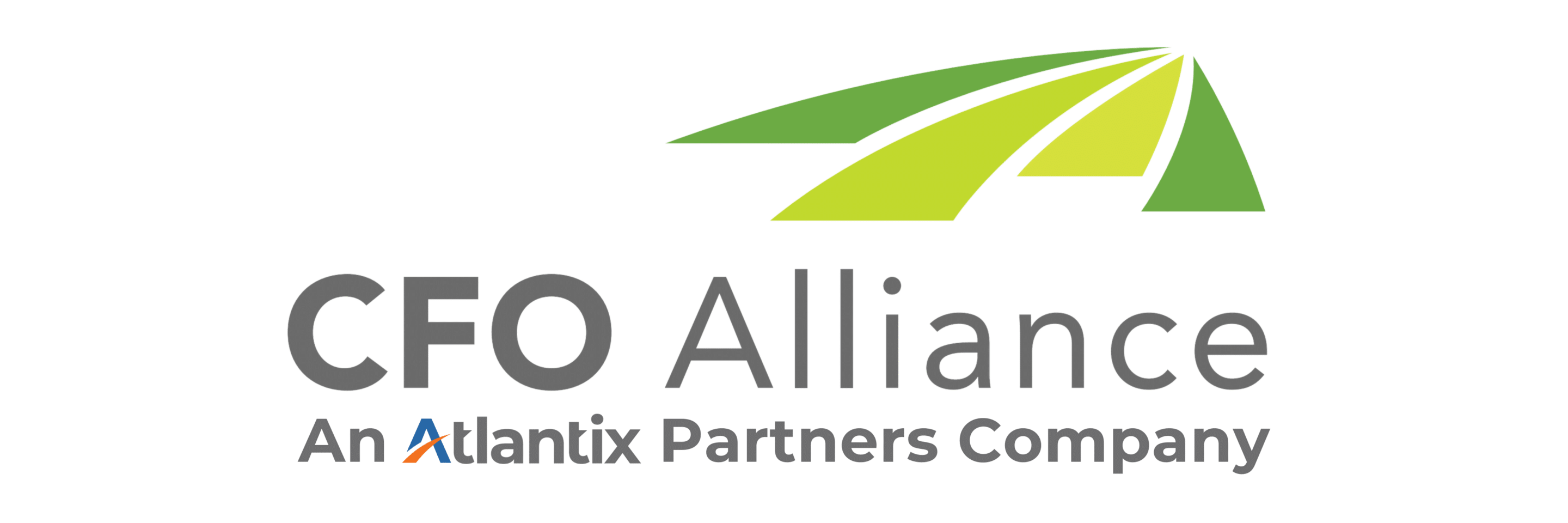Financial Actions You Can Take to Achieve Success in Any Economy
Over the past 3 years, growth companies have faced talent shortages, changing business models, pandemic-related financial stresses, supply chain issues, and an uncertain economy. For many businesses, these ingredients whipped up a perfect recipe for financial stress. But not for all.
At CFO Alliance, all of our clients performed well through Covid-19 and have continued to remain stable during the current economic uncertainty. There are two primary reasons for that:
1. Some of them have innately good business models.
2. All of them practice great financial discipline.
What these businesses know – and what we teach – is that there are certain things that are within your control in any economy to create financial success, even during a recession. In fact, the highest-performing companies often take advantage of a recessionary economy to build.
So how can you position your company to thrive financially? CFO Alliance Founder and CEO Brooke Evans recently shared her insights as part of a panel discussion for the Women Presidents Organization in Tampa. Here are 5 key takeaways:
Have Ample Cash & Access to Capital
Successful founders focus on profit. Exceptional founders focus on converting that profit into cash. Every transaction that happens in your business will lead to cash at some point. That’s why it is critical to keep cash at the forefront of your decision-making process. If you don’t, you may find yourself with insufficient working capital to manage growth – or to survive a pandemic.
“Instead of watching and waiting for the storm to hit last minute, it’s important to be prepared and proactive by practicing financial discipline.” – Brooke Evans
Become a Data-Driven Company
To be successful with finances, you need clear, reliable systems and processes to capture data consistently. As you build these processes and become more focused on data, you’ll have the information you need at your fingertips. This will empower you to make better decisions, identify which opportunities make the most sense, and recognize when you need to make adjustments. Here are three best practices to help you zero in on data:
- Invest in Your Finance Function – Too many business leaders consider the finance function to be a cost center, when in fact it is an investment opportunity. Investing in good accounting and finance processes (and capable financial leaders) is a value driver because it enables you to make data-driven decisions that will help you outperform your competition.
- Use Accrual-Based Accounting – Accrual-based accounting keeps your financial statements complete and consistent from one period to the next. This makes it possible to compare month-to-month or year-over=year so you can spot financial trends more quickly.
- Develop a Strong Month-End Close Process – You should be able to close out your finances within 10-15 days after the end of the month, every month. A strong month-end close process will include controller-level activity to capture costs and ensure complete financials, revenue recognition, accruals, journal entries, and proper cut-off, using a month-end close checklist.
“Financial discipline is a continuous focus & investment in your finance and accounting function.” – Brooke Evans
De-Risk Big Opportunities
Every financial action has an equal but opposite reaction. Amazing opportunities always come with associated risks that could have unintended consequences for your business. Take the time to identify those risks and protect yourself so that if something goes wrong, it won’t be catastrophic. Risks may be related to customer actions, suppliers, talent, lines of business, or dependencies that could adversely affect the company if they were to change. Rather than allowing these risks to deter you from seizing an opportunity, use them as incentives to find a solution that protects your business while also driving growth.
“One could argue the best time to build business is in a recession; take advantage of the opportunity.” – Brooke Evans
Build a Strong Balance Sheet
Companies that get in financial distress almost always have a problematic balance sheet. When you’re not keeping a close eye on assets and debt ratios, it’s much easier to rely too heavily on debt to grow your business. A strong balance sheet ensures that you have enough cash on hand to manage your liabilities. It also safeguards your assets and protects against unexpected changes that could land you in financial trouble.
“Don’t make the mistake of ignoring your balance sheet! That can land you in serious financial trouble if you have insufficient working capital to handle curveballs.” – Brooke Evans
Use a 13-Week Cash Flow Tool
In our experience, the most successful entrepreneurs always operate with a 13-week cash flow strategy. When you are looking 13 weeks ahead, you’ll have reliable forecasts you can use to pragmatically manage cash and make critical course corrections when necessary. This foresight is just as important during times of growth as it is in times of decline, because growth is rarely straightforward and revenue doesn’t necessarily equal cash. A 13-week cash flow tool eliminates uncertainty and helps you use your most strategic asset – your cash – to support sustainable growth.
“The 13-week cash flow forecast is the most important tool a founder can have in their arsenal.” – Brooke Evans
Here’s one final tip:
Remember that the five actions above are just a baseline for healthy finances. If you have all these things in place, they will position you to adopt a data-driven mindset, and that’s where the real magic happens. When you have the right data to make good decisions, you’ll be strategically positioned to outperform competitors in any economy – even a recession.
How Diversification Helps You Stay Ahead of Risk in Any Economy
How Diversification Helps You Stay Ahead of Risk in Any EconomyIt’s no secret that diversification is a key risk...
Automation, Innovation, and Transformation: Keeping Pace with Technology in the Digital Age
Automation, Innovation, & Transformation: Keeping Pace with Technology in the Digital AgeEver feel like technology...
Spring 2023 M&A Outlook: Is It the Right Time to Sell?
Spring 2023 M&A Outlook: Is It the Right Time to Sell?Are you thinking about selling your business to private...



